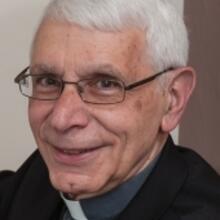I found much prudential and sensible pastoral exhortation in America’s editorial on the Supreme Court decision regarding same sex marriage (“After Obergefell,” 7/20). And that, in my view, is both its strength and its weakness.
Appeal is made to Catholics to proceed in the decision’s aftermath with “humility” and “respect,” as they engage in the public conversation. Such virtues are, indeed, indispensable. But so are their sister virtues of “truth-telling” and “parrhesia” (a favorite of Pope Francis), which the editorial largely neglects.
Thus the editorial runs the risk of being read to support the disjunction between the “pastoral” and the “doctrinal” that has bedeviled discussions of the coming Synod. Citing Cardinal Marx does not dispel the concern that this disjunction may, in fact, be operative.
The editorial does acknowledge that “the Gospel makes radical demands on every dimension of human living.” It would have been considerably strengthened had this perspective been elaborated and, in particular, had it been stressed that such demands very much embrace the sexual dimension of human living.
The editors persuasively quote Pope Francis that “the first proclamation” must be: “Jesus Christ has saved you.” The challenge we face as church, however, especially in North America and Europe, is to proclaim this Good News to a culture that too often reduces “salvation” to a therapeutic and individualist “flourishing.” Francis himself understands this. Hence the importance of his discernment of the counterfeits of authentic human flourishing in chapter three of “Laudato Si’,” “The Human Roots of the Ecological Crisis,” and his insistence in chapter four on the imperative for an “Integral Ecology.”
As it stands, the editorial’s well-intentioned pastoral accommodation can slip too easily into cultural capitulation (of the sort one seems currently to be witnessing in a number of Catholic universities).
Rev. Robert P. Imbelli, a priest of the Archdiocese of New York, is emeritus associate professor of theology at Boston College.








